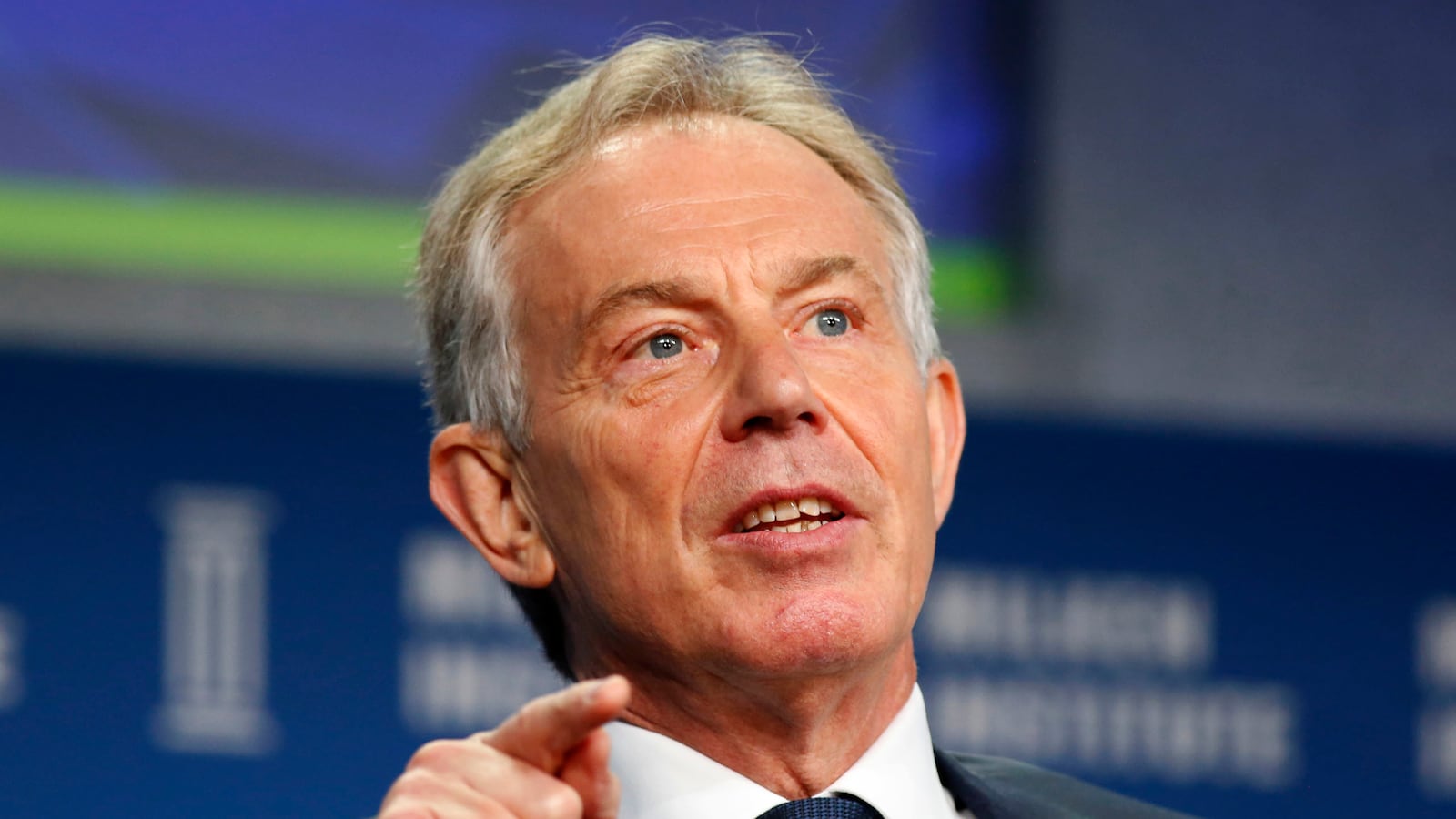Tony Blair has called for Europe to pull itself together and stop begging the United States for help every time something goes wrong.
The former British prime minister said it was time the continent stood on its own two feet more than 70 years after America intervened decisively in the Second World War. Recent crises in the region and conflicts in countries along the border have exposed the total reliance on Washington to alter events within Europe’s neighborhood.
Blair said it was incongruous that such an economically powerful union was still “having to turn to the U.S. and ask for their help” whenever a foreign policy crisis erupted, whether it be Libya, Syria or Ukraine. More than a decade after the birth of his partnership with President George W. Bush, he said Brussels (capital of the European Union) should develop a stronger foreign policy and more powerful defense strategy.
“Now I’m a great fan of the U.S.,” he said. “I think it’s important that we remain strong allies of the U.S., but we ought to develop in Europe the capability of being able to handle the problems on our own doorstep.”
Blair, now a Middle East envoy, was speaking shortly before Prime Minister David Cameron condemned the attack on Flight MH17 and called for Europe to consider the introduction of tougher sanctions on Moscow. He said Russia should not expect access to European markets, capital and technical expertise while simultaneously fueling a conflict in Ukraine.
A day earlier Cameron had written that the lessons of the Second World War should be heeded. “In Europe we should not need to be reminded of the consequences of turning a blind eye when big countries bully smaller countries,” he wrote in the Sunday Times. “But we do.”
The threat of European sanctions may cause some concern in the Kremlin, but Europe has been extraordinarily ineffective in challenging President Putin’s behavior in recent months.
Speaking in London, Blair said that it was “absolutely essential” that the U.S. and the EU delivered a “strong and united message” to Russia over Ukraine.
“There’s a short-term issue on Ukraine where it’s important for the two sides of the transatlantic to come together, and I think there’s a longer term issue that’s absolutely about where Europe goes in the future,” he said.
“There is an urgent need today for Europe to have a strong foreign policy and indeed defense policy because if you look at any of the crises that are happening, whether it’s in Syria on the doorstep of Europe, Libya on the doorstep of Europe, Ukraine on the doorstep of Europe, we are completely dependent on the United States of America.”
Blair was once a candidate to be named President of Europe, but national governments stepped back from appointing such a well-known leader, in what has been largely a figurehead position. His insistence on a stronger centralized European response to crises in the region demonstrates why he was seen as such a dangerous alternative in some quarters.
“How do we make sure that Europe as a commercial market and political union today exercises the power it has in a way that manages to shape events on our doorstep rather than having to turn to the U.S. and ask for their help?” he asked. “When the U.S. is unable to, for whatever reason, we’re then powerless.”






